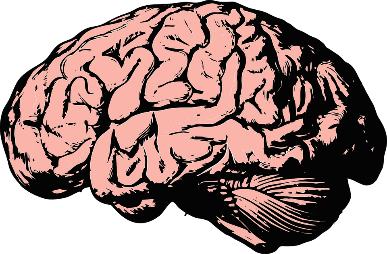1 Thessalonians: The immoral cannot know God (freedom from paganism).
March 14, 2023

The theme of Thessalonians (both 1 & 2) is the encouragement to
live godly despite persecution and in light of our coming Lord.
Act 17 shows us that Paul found many converts in Thessalonica who were Gentiles. Some of these Gentiles were in the process of conversion to Judaism and other Gentiles who were not influenced by the synagogue. What all the Gentile converts had in common is that they came from a pagan world. Growing up pagan is quite a bit different than growing up under the Mosaic Law as a Jew. Whether he is a follower of the law or not, the Jews of that time were reared in a fairly strict moral environment. The pagan, on the other hand, was surrounded by much more immorality.
The Bible tells us that pagan gods are simply demons in worldly dress. The fact that there are so many of these gods, and that they are of different emphasis (what they stand for), is a consequence of the fact that no one thing appeals to all people. Some want a form of morality, some want pure immorality, some want worldly wisdom, some want strength or athleticism, etc. Some things, like sexual stimulation, affect larger numbers of people than others. Just an analysis of the number of visits to internet web sites shows that the most popular sites are not about philosophy, though for some small portion of the population, philosophy is a pagan god.
Though the names of Dionysus (Bacchus), Zeus, Cybele, and Eros are only ancient history, their altars have not disappeared. All of us were brought up in some form of pagan worship until we were set free.
The gospel is the only freedom from pagan worship.
1Th 1:8-10
For the word of the Lord has sounded forth from you, not only in Macedonia and Achaia, but also in every place your faith toward God has gone forth, so that we have no need to say anything. 9 For they themselves report about us what kind of a reception we had with you, and how you turned to God from idols to serve a living and true God, 10 and to wait for His Son from heaven, whom He raised from the dead, that is Jesus, who rescues us from the wrath to come.
The gods of their forefathers, whose images occupy the temples and public places of the city, and other minor deities adorned in domestic or more private worship, they renounced as being nothing in the world.
1Co 8:4
Therefore concerning the eating of things sacrificed to idols, we know that there is no such thing as an idol in the world, and that there is no God but one.
The misery of the heathen is that they know not God.
Joh 17:3
“This is eternal life, that they may know You, the only true God, and Jesus Christ whom You have sent.”
Joh 16:14
“He will glorify Me, for He will take of Mine and will disclose it to you.”
Pagan moral weakness stems from not knowing God.

Truly know God and your behavior will drastically change.
We know, and it always bears repeating, that you are not going to truly know God unless you concede to give your will to Him. This life is not knowing something about God, but knowing Him fully. To many Christians are satisfied with a superficial knowledge of the Father and the Son, and with that, they can never live and experience the eternal life given to them.
1Th 2:13
For this reason we also constantly thank God that when you received the word of God which you heard from us, you accepted it not as the word of men, but for what it really is, the word of God, which also performs its work in you who believe.
Your journey of knowledge of God starts when you realize that all of your life has to be handed over to God.

Pro 1:7
The fear of the Lord is the beginning of knowledge; Fools despise wisdom and instruction.
This ignorance is the cause of the pagan’s moral weakness, which matches the peril of their eternal ruin.
Idols, which are demons in worldly dress, never point to righteousness. Some ideologies are more moral than others, for instance the Stoics were more moral than most, but they lacked love for others in a sacrificial sense. Remove divine love from your moral code and you are self-righteous - that’s not righteous.
In a more modern sense, we examine the sexual revolution of the postmodern era. In the early 1900’s Sigmund Freud gave the world a myth (he wasn’t the first to have the idea, but he was the first to give it the background of science). That myth is the idea that sex, in terms of sexual desire and sexual fulfillment, is the real key to human existence, to what it means to be human. Nobody looking at Western society today could fail to see how sex dominates the culture in a way unknown to our ancestors in the Middle Ages or even in the early modern age. From art to politics to advertisement sex is omnipresent. Thinking of human beings as fundamentally defined by their sexual desire is now virtually intuitive.
This sexual revolution came from a syncretization of several earlier ideas (Rousseau, Marx, Darwin, Freud, Hume, and others). These very influential people told the world that people were defined by a selfhood that they possessed within themselves, their inner psychological selves. This understanding led to a focus on feelings as central to human life. In other words, it was no longer what God thought of you that mattered, but what you thought of you. What you were was not defined by your Creator, but by your own aesthetics, how you felt inside.
“The particular object of my confessions is to make known my inner self, exactly as it was in every circumstance of my life. It is the history of my soul that I promised, and to relate it faithfully I require no other memorandum; all I need do, as I have done up until now, is to look inside myself.” [Jean-Jacques Rousseau, Confessions]
God and Christianity were seen as holding man back, holding him down, not allowing man to reach his full potential. [Ironically, the smart ones, like Freud, realized that the idea of self in these terms, if were given free reign, would destroy society]. So the real humanity was a pursuit of one’s own happiness. Happiness became a psychological state and Freud made that state entirely founded on sexual gratification. The purpose of sex left the Bible behind (lifelong commitment in marriage and procreation for a family headed by two biological parents) and went straight to the genitals.
In fact, the whole purpose of what it meant to be human went there. True happiness became sexual gratification, and so unhappiness was the corrupting powers that came from God who placed restrictions on what they concluded made us truly human. And that idea led to the sexualization of children.
So when Paul writes to the Gentiles in Thessalonica, whom the gospel freed from idolatry, he is sure to tell them that the old ways of the gods are no longer theirs, which way included sexual immorality. Paul exhorts them to leave behind the old ways of the demon gods, not because they need to earn anything with the true God, but because they now belong to the Father, and His way of human sexuality and passion is narrow.
1Th 4:1
Finally then, brethren, we request and exhort you in the Lord Jesus, that as you received from us instruction as to how you ought to walk and please God (just as you actually do walk), that you excel still more.
“excel” is the same word the Lord used to describe His disciples.
Mat 5:47
“If you greet only your brothers, what more (how is that excellent?) …”
1Th 4:2-8
For you know what commandments we gave you by the authority of the Lord Jesus. 3 For this is the will of God, your sanctification; that is, that you abstain from sexual immorality [porneias]; 4 that each of you know how to possess his own vessel in sanctification and honor, 5 not in lustful passion, like the Gentiles who do not know God; 6 and that no man transgress and defraud his brother in the matter because the Lord is the avenger in all these things, just as we also told you before and solemnly warned you. 7 For God has not called us for the purpose of impurity, but in sanctification. 8 So, he who rejects this is not rejecting man but the God who gives His Holy Spirit to you.
This passage crushes the lie that a Christian can live an immoral lifestyle and know God.
They can have biblical knowledge, but they cannot truly know God.
Ironically, the purveyors of the sexual revolution accuse the godly of not being true to themselves. But the self that they advocate is separated from his Creator who made him in His own image. So in one way they are correct, we are not being true to the self that has no knowledge of God.
Cleaning up an amoral life is not a means of salvation. Faith in Christ is the means of salvation. But the moral life of a person is the direct result of knowing God, not academically, for scholars can be very amoral (Pharisees and priests in Scripture, especially the gospels, show this), but knowing God through knowledge and faith - being a friend of God. Abraham was called this, as James showed us, because his faith was justified in the outworking of the works of his life.

“his own vessel” – the body is an instrument of the inner self.
Paul uses the Greek word skeuos (vessel or instrument) to describe
The body instead of soma. Unlike some pagan myths that saw the
human body as inherently evil, God does not see it that way.
The body is fallen due to the sin nature it possesses, but it is to be used by us as an instrument for righteousness and a vessel of honor.
2Ti 2:21
Therefore, if anyone cleanses himself from these things, he will be a vessel for honor, sanctified, useful to the Master, prepared for every good work.